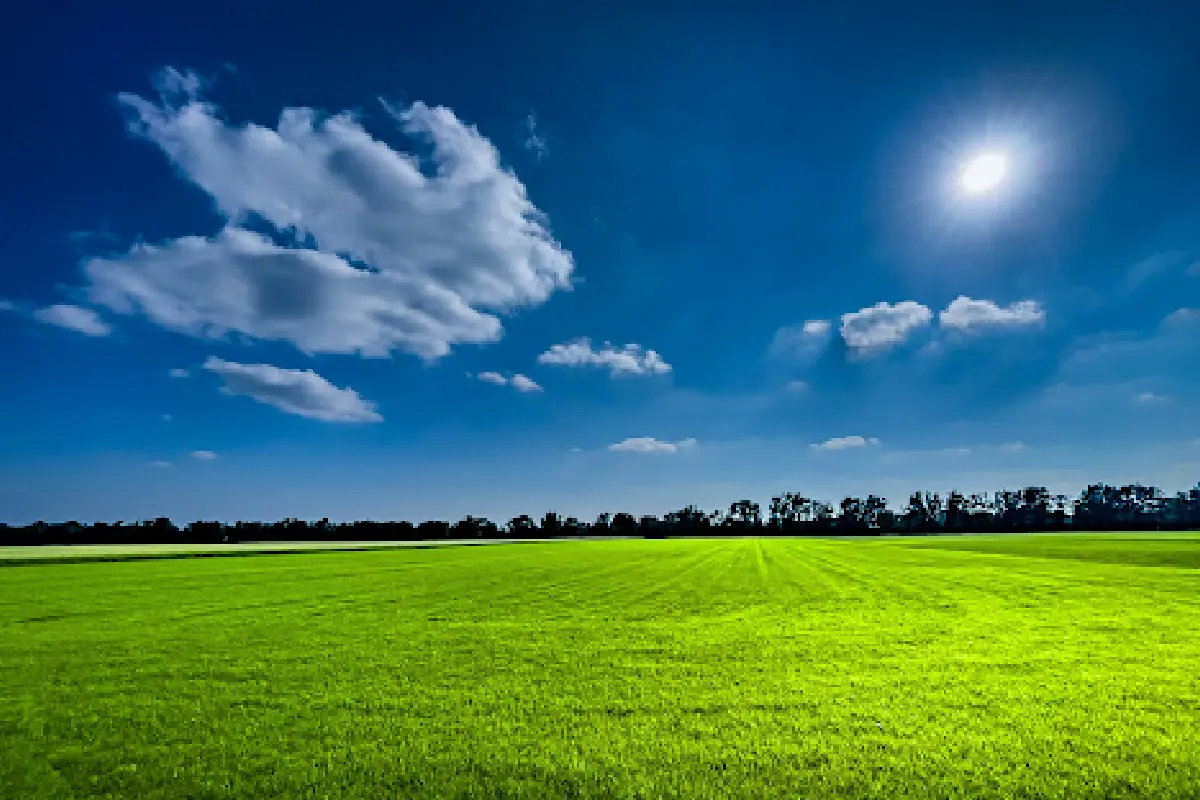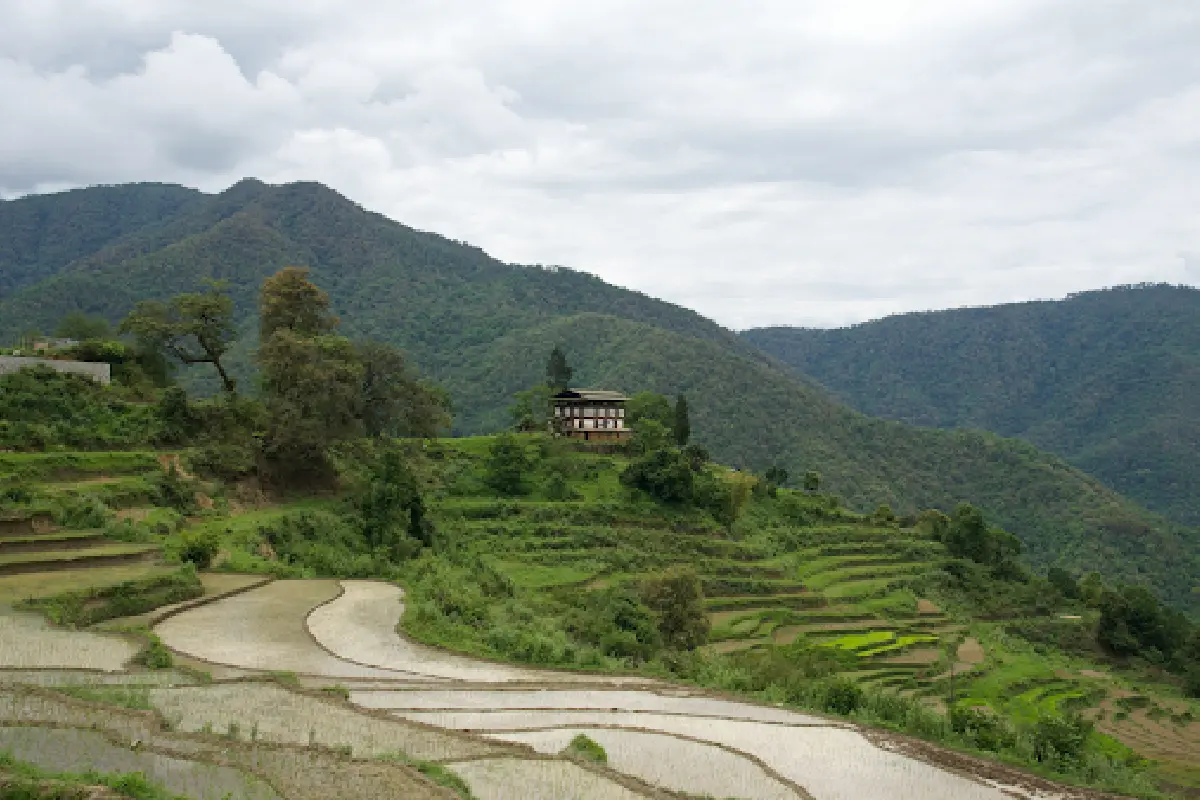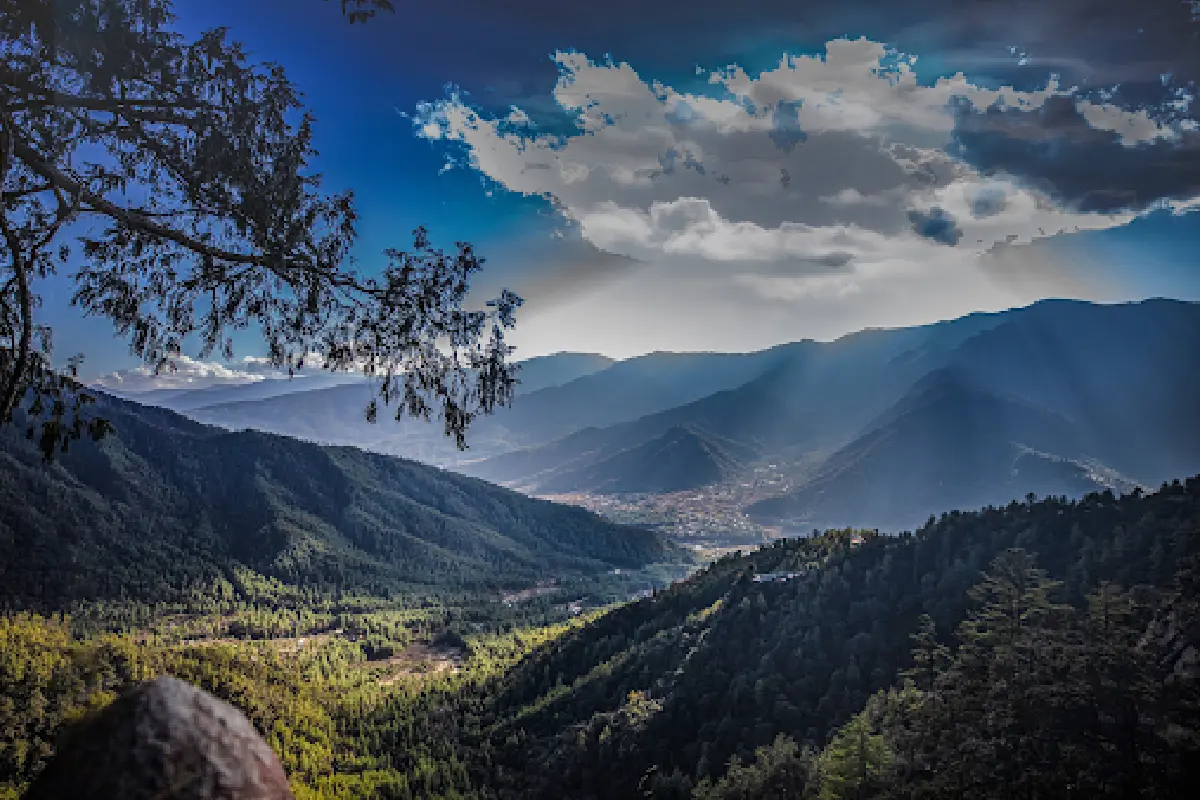Hi Lama La, when I read about a new virus spreading around the world my heart sank. Some people did well in the lockdowns, but I’m not one of them. As I’m self-employed I lost so much financially, but more troubling was my mental state. I couldn’t handle being locked up for weeks on end and fell into depression. I even felt suicidal. Does Lam believe that this virus will spread like covid and result in more lockdowns? Also, are there more viruses appearing these days – if so, how can we prevent such occurrences? Is there anything little Bhutan can do to affect positive change in the world?
Master – I assume you are referring to mpox. It is not a new virus. Formerly it was known as monkey pox, and was first discovered in monkeys in 1958, with the first human case being identified twelve years later in 1970.
Since then, there have been frequent outbreaks in Central and Western Africa. There are currently two strains, one of which is more severe, but both are transmitted in the same way and generally heal naturally within two to four weeks.
Should you be worried? No, not according to the experts, but you should be alert. Here’s an abbreviated statement issued by Dr Marc-Alain Widdowson, WHO Europe’s head of high threat pathogens:
“People shouldn’t be alarmed about having a covid-like situation suddenly happen again because of mpox. Covid-19, for instance, is a respiratory virus while mpox is quite difficult to catch”. He further added, “You need a degree of prolonged contact to be able to get it or intense contact, such as sex, which has been the predominant mode of transmission in Europe.”
The most effective way to prevent infection is to avoid situations that increase the possibility of transmission, which are:
- close physical skin-to-skin contact with an infected person, including sex, massage, kissing, etc.
- contact with contaminated materials, such as towels, bedding and clothing.
- inhaling respiratory droplets spread by close and prolonged face-to-face interaction with someone infected with mpox.
As with covid, frequently washing hands with soap and water or using a hand sanitizer that contains over 70% alcohol acts as a barrier to the virus spreading.

Will mpox cause a return to lockdowns? Based on the present predictions, it’s extremely unlikely. For one reason, the virus is far less contagious than covid, and, secondly, most countries will not readily close their borders and place their citizens under lockdowns so soon after the hardships of the recent pandemic. This would be a very last option, and we are very far from that point at the moment.
Furthermore, there are already three vaccines available that offer effective protection from mpox. Although current supplies are limited, production could be ramped up if necessary.
This is a totally different scenario to when covid first appeared in November of 2019. As a new virus, there were no vaccines available to combat its transmission, and even before production could begin, research and testing had to start from scratch. Due to this delay, the outbreak was able to spread and develop into a pandemic.
So, at present there is absolutely no need to worry about the spread of mpox and a return to lockdowns. Still, you should keep up-to-date on the situation. Viruses mutate, and so it is advisable to be prepared for new developments, especially if you plan to travel in regions where there are reported cases of the virus.
Are there more viruses these days and are they spreading at a quicker rate than in the past? Yes, more viruses are being discovered, but we are also getting better at detecting them. There are two main factors that have accelerated the increase of viruses and helped develop their capacity to spread around the world: the increase of international travel and degradation of the environment.
There is little we can do about an increase in international travel, as this has become an engrained part of modern life. However, we need to take steps to prevent the destruction of wildlife habitats, such as jungles. Not only does the loss of green space effect the lands’ ability to absorb carbon dioxide, which helps offset the greenhouse gas emissions that cause global warming, but it also puts man and domestic animals in direct contact with wildlife.

What is the problem of man and wildlife meeting? Well, it greatly increases the possibility of viruses that are common in the jungle jumping species and infecting humans. Sars and covid both originated from wild animals, with the viruses then infecting an intermediary species before finally entering the human population, causing devastating pandemics.
What can be done about this situation? With the world’s present political and economic situation, sadly, very little. Currently, the GDP index that most countries have adopted to assess their level of development strongly tilts in favor of large international companies at the expense of the environment.
Why is this? Well, GDP focuses only on the profit aspect of an economy, and does not factor in the side-effects of production. As a result, even though the destruction of jungles and forests increases the conditions for global warming to become a reality and for new zoonotic viruses to emerge, they only register as a plus on a country’s GDP statistics. In contrast, the colossal economic losses, not to mention the catastrophic effect on human lives, caused by global warming and pandemics is not reflected in the figures at all.
As they are totally profit oriented, large international companies use their influence to pressure governments to continue to use the GDP index to measure development, while opposing any proposals to introduce a system that also registers the cost of environmental destruction.
You ask whether Bhutan could do anything to enact positive change. Yes, definitely. We can act as a role model for sane development and harmonious living.
While many countries have a higher forest cover than Bhutan, with Japan, for example, having almost 70% coverage despite having a population density of around 330 people per square kilometer, compared to Bhutan’s just over 20 people per square kilometer, only Bhutan has mandated in its constitution that 60% of its land must be under forest cover. This is something that we can proudly promote at international environmental conferences.

Now, if only we could develop a strategy to eliminate the use of single-use plastic and the metallic plastic bags that are often used to package potato chips, we would have even more to shout about in these conferences.
Perhaps we could learn from Taiwan, which introduced a plastic bag charge 22 years ago and plans to introduce a blanket ban on single-use plastic bags, straws, and cups by 2030. It would also be a sincere statement of commitment to environmental protection and an impressive introduction to the country if our airlines served meals on locally made stream-pressed leaf plates and bowls.
However, I feel Bhutan’s greatest contribution to the planet is wisdom, which is why so many people in developed countries invite our lams and khenpos to teach there. If only our education system could teach the basics of the Dharma, not the ritual, but the philosophy, such as the Four Seals, our people who attend international conferences would be like seeds of sanity and wisdom scattered in far lands.
Still, such initiatives require commitment and planning. Until then, we can at least be proud to be a carbon-negative nation that places the wellbeing of its citizens as its highest priority.



